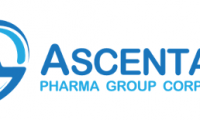-
FDA Approves Fresenius Kabi’s Tyenne, a Biosimilar of Actemra for the Treatment of Autoimmune Diseases
- Source: drugdu
- 171
- March 11, 2024
-
AACR 2024 | Ascentage Pharma to Present Three Preclinical Studies at 2024 American Association of Cancer Research Annual Meeting
- Source: drugdu
- 99
- March 10, 2024
-
US researchers develop algorithm test to identify aggressive ovarian cancers
- Source: drugdu
- 83
- March 9, 2024
-
Novel Test Identifies Aggressive Ovarian Cancers Early
- Source: drugdu
- 124
- March 9, 2024
-
FDA Approves Opdivo Plus Chemotherapy for Frontline Treatment of Unresectable, Metastatic Urothelial Carcinoma
- Source: drugdu
- 127
- March 9, 2024
-
Gilead and Merus enter trispecific antibody discovery deal
- Source: drugdu
- 108
- March 9, 2024
-
Henlius’ Trastuzumab Plots Southeast Asia Expansion, to Enter Thailand and Philippines
- Source: drugdu
- 133
- March 8, 2024
-
Jacobio Pharma Receives IND Approval for P53 Y220C Activator JAB-30300 in the U.S.
- Source: drugdu
- 152
- March 5, 2024
-
ICL uses AI to help doctors assess lung cancer from ‘virtual biopsies’
- Source: drugdu
- 72
- March 5, 2024
your submission has already been received.
OK
Subscribe
Please enter a valid Email address!
Submit
The most relevant industry news & insight will be sent to you every two weeks.













